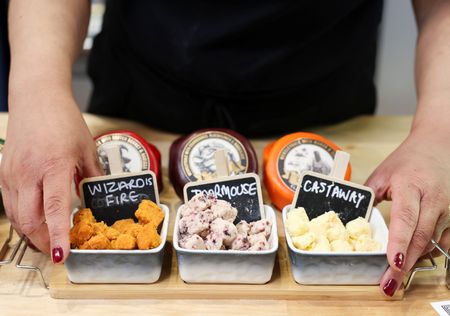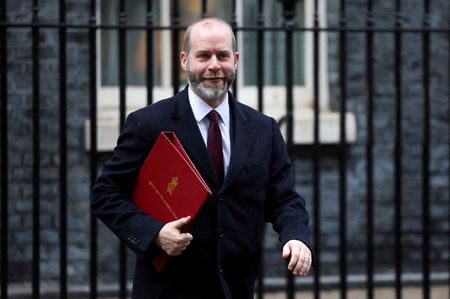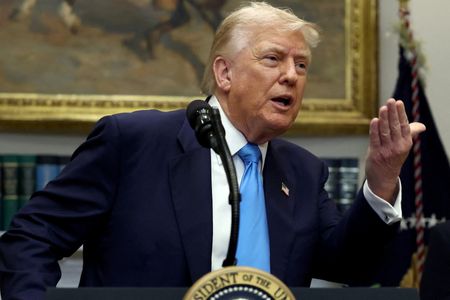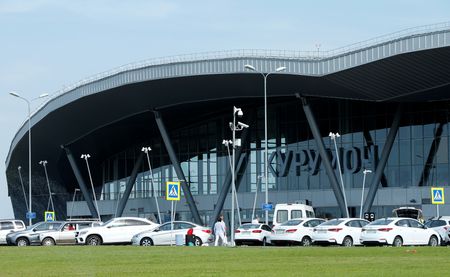By David Milliken
LONDON (Reuters) – Britain will not relax its food safety standards as part of any deal to secure lower tariffs on its exports to the United States, business minister Jonathan Reynolds said on Sunday.
U.S. President Donald Trump has imposed 10% tariffs on most imports of British goods to the United States and a higher 25% rate on imports of cars, steel and aluminium.
Although the tariffs imposed on Britain are at the lower end of the United States’ scale – reflecting broadly balanced trade flows between the two countries – Reynolds said he still viewed the greater trade barriers as “disappointing”.
Earlier this month, just after the tariffs were announced, Reynolds told the BBC it was “not inaccurate” to say the United States and Britain had agreed the broad outline of a possible deal, though Trump had not seen it.
However, there has been little sign of progress since and last week finance minister Rachel Reeves said she intended to meet U.S. Treasury Secretary Scott Bessent “shortly”.
Attempts to strike a bilateral trade deal during Trump’s first term in 2017-21 ran into opposition from Britain’s Conservative government at the time over measures to lower animal welfare and environmental standards.
Reynolds said on Sunday that looser food standards remained off the table for the Labour administration, as he viewed that as breaching promises made in 2024’s election campaign.
“We will never change our SPS (sanitary and phytosanitary) food standards. We’ve made that perfectly clear to the United States,” he told Sky News in an interview.
Common U.S. and Canadian practices such as washing raw chicken in chlorinated water or feeding growth hormones to cattle are banned in Britain and the European Union.
However, parts of the U.S. food industry did meet British standards, Reynolds said, hinting at a possible area for negotiation on tariffs.
Last week Britain’s culture minister ruled out any changes to its new Online Safety Act, which can fine big, predominantly U.S., tech companies up to 10% of their global turnover if they do not moderate content to British regulators’ liking.
(This story has been refiled to remove the duplicate words in paragraph 4)
(Reporting by David Milliken; editing by David Evans)










